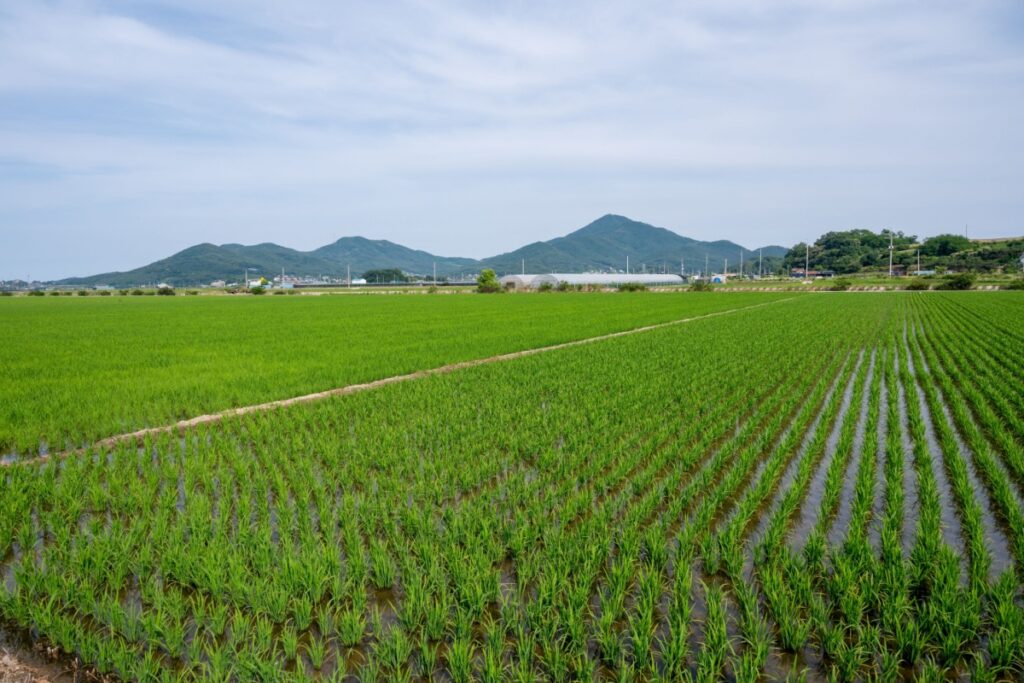On reclaimed coastal land near Seosan in western South Korea, rice farmer Hwang Seong-yeol says the seasons no longer follow the patterns he knew when he started more than 30 years ago. A harsh cold snap in early 2024 delayed growth, followed by summer downpours that flooded his paddies and a damp autumn that triggered fungal disease and reduced yields.
Hwang is one of five farmers suing Korea Electric Power Corporation (KEPCO) and several generation subsidiaries. Their lawsuit argues that the state utility’s reliance on coal and other fossil fuels has intensified climate change, driving the unstable weather that damages their crops. Campaigners describe it as South Korea’s first climate liability case against a major emitter, testing whether a single power company can be held partly responsible for climate-related farm losses.
Damages Claim And Coal Exit Demands
The case is backed by the nonprofit Solutions for Our Climate. Lawyer Yeny Kim says public data show the KEPCO group produced roughly 30% of South Korea’s greenhouse gas emissions between 2011 and 2022, equivalent to about 0.4% of global emissions in that period. On that basis, the plaintiffs argue KEPCO should be liable for 0.4% of their climate-related agricultural damage.
Each farmer is seeking 5 million won in compensation. The suit also demands a symbolic payment of 2,035 won per person, chosen to call for shutting all coal-fired power plants by 2035, five years earlier than the government’s current 2040 coal phaseout schedule.
KEPCO, which operates the national grid and controls the largest generators, has declined to discuss details of the case, citing the ongoing proceedings. The utility says cutting carbon emissions is a central goal and points to a plan to reduce emissions by 40% by 2030 compared with 2018 levels. At the same time, the company carries debt exceeding 200 trillion won, which it links partly to past government decisions to keep electricity prices low, limiting room for larger investments in renewable energy and grid upgrades.
Climate Impacts Outpace Energy Transition
The lawsuit comes as farmers experience mounting climate pressures. Government assessments say 2024 was South Korea’s hottest year on record, with heavy rain, heat waves and storms causing repeated “agricultural disasters.” Officials warn that farmers are inherently vulnerable to such extremes, facing higher costs for inputs and disease control as harvests become less predictable.
Yet the country’s energy mix remains dominated by fossil fuels. Renewable sources supplied only about 10.5% of South Korea’s electricity in 2024, while more than 70% of the power produced by KEPCO’s main subsidiaries still came from coal. By contrast, advanced economies in the Organisation for Economic Co-operation and Development (OECD) averaged roughly one-third of their electricity from renewables in 2023.
Energy policy scholar Yun Sun-Jin of Seoul National University says the farmers’ complaint is important because it shows how climate change affects livelihoods far from boardrooms and ministries. At the same time, she notes the difficulty of assigning legal responsibility to one utility when households, manufacturers and service industries have all benefited from relatively cheap power. In her view, faster investment in solar, wind and grid modernisation will be central to cutting emissions while supporting economic growth.
A Local Case In A Global Litigation Wave
The KEPCO case is part of a wider rise in climate litigation worldwide. UN-backed research counts more than 3,000 climate-related lawsuits filed across dozens of jurisdictions, targeting governments, oil and gas firms, utilities and heavy industry. Plaintiffs are testing whether courts can compel faster climate action or allocate part of the financial burden for climate damage to large emitters.
Outcomes have varied. In Germany, a high-profile claim by Peruvian farmer Saúl Luciano Lliuya against energy company RWE was rejected after years of proceedings, with judges ruling that one firm could not be held directly liable for specific climate impacts despite measurable historic emissions. Legal experts say that ruling highlights the steep evidentiary hurdles facing claimants, but also note that a different verdict elsewhere could set a powerful precedent.
In South Korea, the pressures are visible in orchards and fields far from Seosan. Apple grower Ma Yong-un, who tends about 2,200 trees in Sancheong, reports more pests and fungal outbreaks as summers grow hotter and wetter. He now applies protective coatings to fruit to limit sunburn and disease, adding expense and labour he did not face a decade ago. Farmers on Jeju Island and in Hamyang describe similar patterns of rising costs and unpredictable yields.


